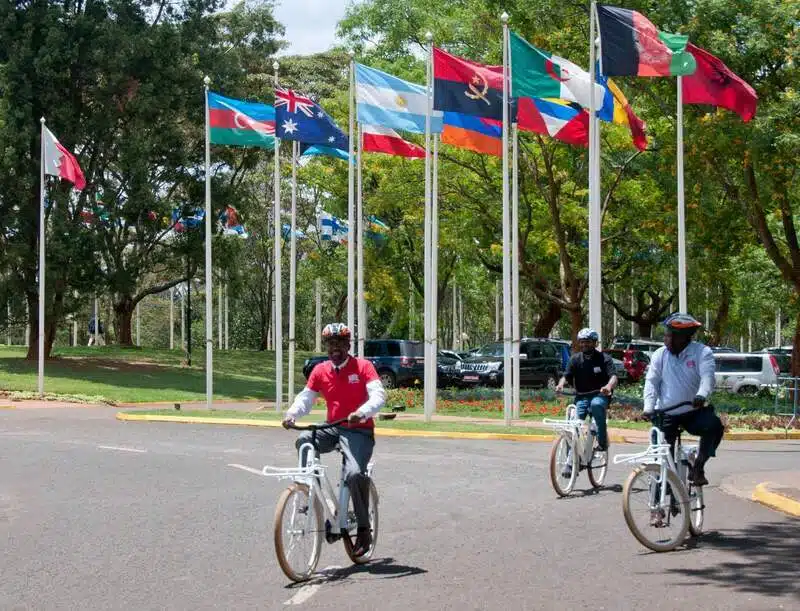The capacities of Nairobi’s transport system are exceeded by the rapidly growing population. Local start-ups are developing new approaches to address the urban challenges.
Traffic jams, polluted air and unreliable public transport – Kenya’s capital city of Nairobi is facing many challenges in the transport sector. On average, its 4.5 million inhabitants need almost an hour to get to work or school. As one of the ten most congested cities in the world, Nairobi is particularly impacted, but many other growing African cities are facing a similar situation.
Nobody is more familiar with the situation than the local people. That’s why they’re working to find solutions themselves. In Nairobi, many entrepreneurs are developing creative ideas for a sustainable future of mobility. To put their ideas into action, TUMI supported these young entrepreneurs through two six-month coaching and mentoring programmes, implemented between 2019 and 2021. Christopher Maara used this support to further develop his start-up KiriEV, which aims to provide the city’s population with electric two-wheelers. ‘The mentors from TUMI helped us refine our business model and make informed business decisions,’ he reports.
Through the start-up accelerators, young entrepreneurs are brought together with specialists from development cooperation, academia and research, as well as the commercial sector. Transport experts, for example, advise the start-ups in workshops, which also focus on establishing and refining their business models.
The programmes were implemented by the C4DLab of the University of Nairobi, as well as the Africa Mobility Initiative. The successful collaboration of partners included an ecosystem of international organizations such as the Shell Foundation, UN Habitat and WRI Ross Center.
The start-up Smatbeba particularly impressed and received a prize as the winner of the funding programme, sponsored by Shell Foundation. Smatbeba organizes transportation for various types of freight delivery. CEO Anthony Ndolo is pleased with the progress of his company: ‘During the programme, we grew six-fold within six months.’
What began as a local initiative in Kenya has further expanded to Uganda and is intended to benefit the entire region in the long term. Beyond supporting individual start-ups, the TUMI Challenge, together with its partners, is boosting the entire business landscape in East Africa. Anthony Ndolo also has a pioneering vision: ‘We’re looking to win more customers in future and expand our services to the whole of Africa.’
Find more information about the project here.
TUMI Challenge Nairobi, Kenya – Start-Up Accelerator
You are currently viewing a placeholder content from YouTube. To access the actual content, click the button below. Please note that doing so will share data with third-party providers.
